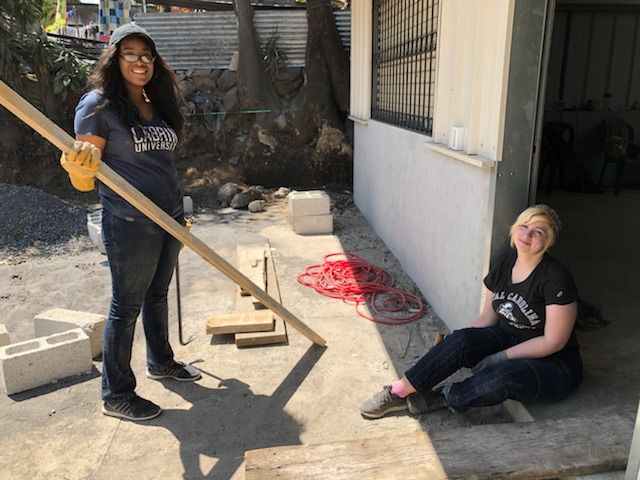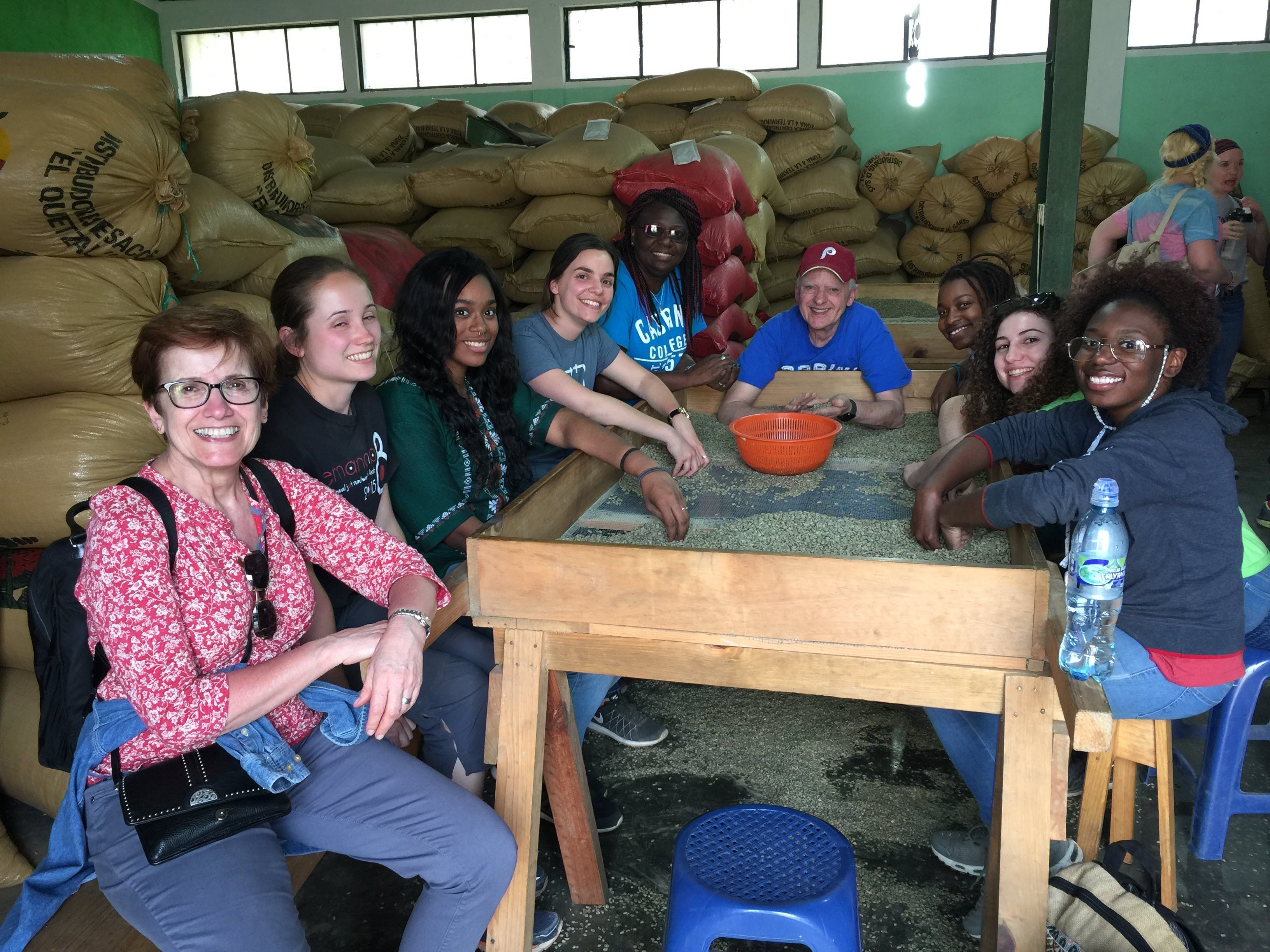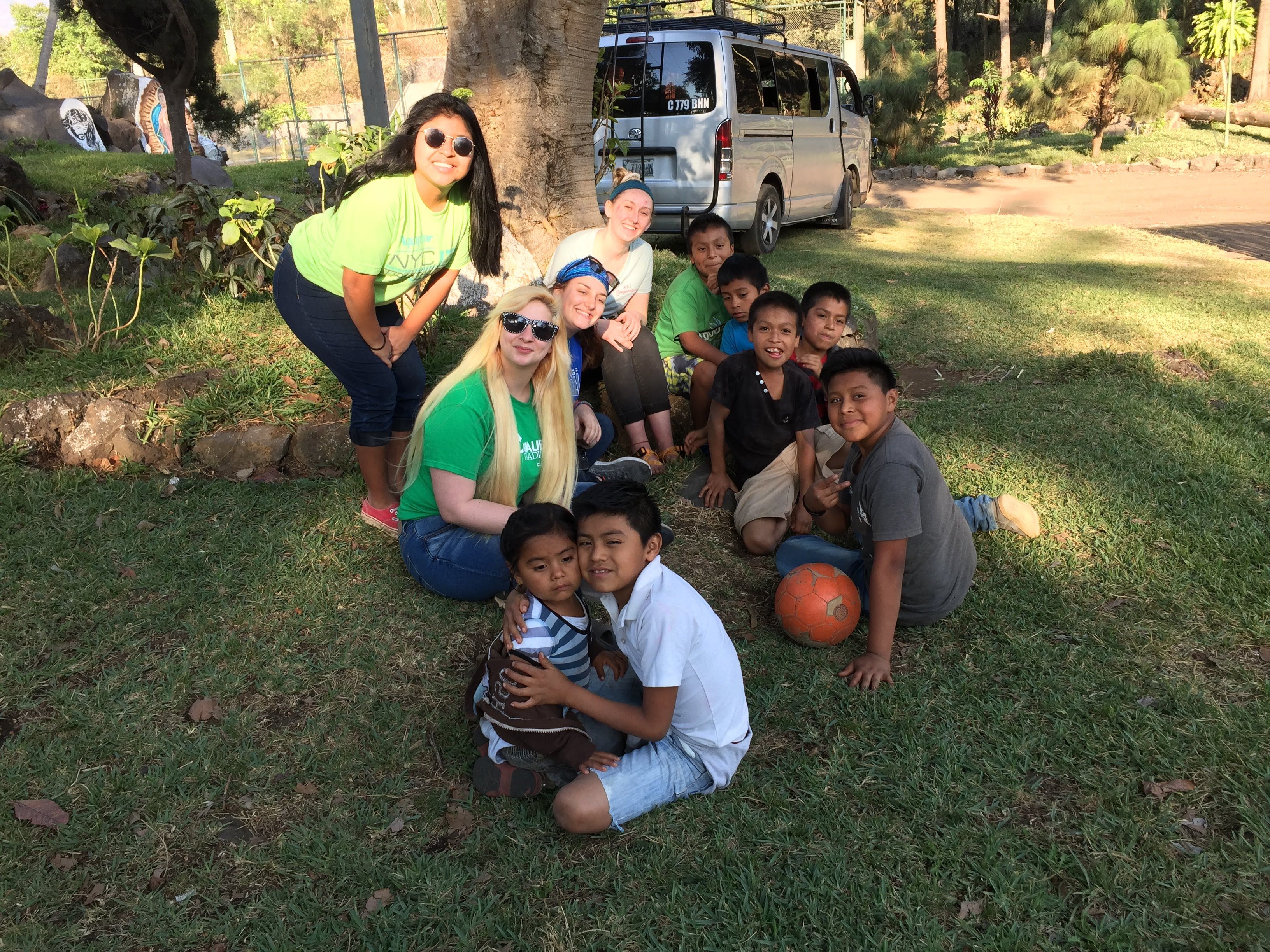My experience with forced migration and poverty
If something goes on right in your own backyard you would think it’d hit close to home. But many Americans are ill informed about what really is taking place in regards to immigration in our country and others.
I was no better. There was a lot I had zero clue about, even though I have a step father that came to this country for the same reason many other have. Those reasons were for safety and opportunity.
Yet still, the struggles of others in the world continued to go over my head as more pressing issues like my homework and outfits would come up. So what does it take for something to really hit close to home? For me, the issue was in my backyard and within my own home, even that didn’t do it.
It took me packing my bags and traveling to Central America to visit their home. It took me placing myself in someone else’s shoes, and being outside of my own home to truly see the world is home to everyone. And I learned that if we aren’t all contributing to making the world better then we’re hurting ourselves as a result.
Going to America
Putting a face to a concept and topic does makes it easier to a face such a broad issue. For example, when we talk about young men and how “They’re stealing jobs,” I can’t help but think of Rene. This is the man that showed a peer and I how to effortlessly push nails from slabs of wood while prepping to build a wall for a local school. What took us 8 – 10 minutes, while struggling, took him 4 – 5 seconds without a thought. Rene is a skilled carpenter and handyman. He is not only knowledgeable, but very patient and kind.
I spent two different days with him working at this school. During this time I did field work by helping him to dig holes for the new wall. I also helped to clean and prepare wood for future projects. Each time, he was happy to show me an easier and much safer way to do my work. He never rushed us either, and would always thank my small group and I for whatever work we did. But many others don’t have this opportunity.

If he were without that job, it saddens me to know that he could very easily fall into the harsh reality facing many men in Guatemala; poverty and violence. These two unfair realities plague the country in a way that is sadly all too familiar to the older generation. Without work they either leave home to find jobs or fall prey to gangs. What’s worse is when both take place. Even though the war is now over, it has left such a beautiful country in an awful situation.
The system is one that is broken without doubt. From jobs only going to government families and elites, to corrupted voting system, not much is fair. But it is our jobs, here in the US, to talk to the officials that we elect to make a difference. We have to let them know if we approve or disapprove of the actions they have taken regarding these problems in Guatemala. We as citizens of the USA have this right, while so many others do not. Even though this issue is impacting Guatemala and other Central American countries we have to take part of this responsibility here if we want to see real change.

Finding the Cause & Effect
Listening to Juan Sheenan, the CRS country director from Honduras, I was able to learn more about forced migration and youth violence. He explains how so many gang members come back to countries like Guatemala from the USA, only to ravish the people, land, and resources. It deeply hurt me to hear how our broken prison system in the USA can make a broken country even shattered than before. “They’ll get their PhD in the USA, and then come home to practice,” Sheenan said.
What does this say about our criminal system as well? If all it is able to do is make harder and smarter criminals what is the point? Most of these men, women and children come to the USA because they have hopes and dreams of escaping absolute terror. They look to have better opportunities and a chance at a brighter future. And upon arrival, the only support they find is within the gangs and jails that are too eager to accept a new outcast.
One thing life has taught me, especially in recent years, is that there is always more work to do. But working alongside Rene gave me a new definition to the term “work.”
The people coming up to the US are not afraid of hard work, or the jobs that many Americans would stick their nose up at. They aren’t even trying to steal jobs away. Most migrants simply understand that there is work to be done. They have to feed their families, clothe their children, build better homes and roads for their communities, etc.
Migrants can also be people having zero negative marks, zero mistakes, model citizens of their countries like Angelita. A lady that is beyond impressive with experience as a smoke jumper who puts out wildfire. She is a midwife and has graduated from high school studying computers and literature. She cooks with her mother and does hard field work with her father. And yet there are still no paid jobs for her. What is someone like her to do?
Even if every right wing conservative got their way this wouldn’t change the root problems. I’ve heard countless times some Americans say things like “ If you don’t like it here, go back home! Go to your own country!.” They have no idea how hard some people have it back home. They have no idea how being home could mean starvation, with 50 percent of children under 5 being malnourished. This is if there is even a home to go back to…

Without available jobs, there is nothing people can truly do to change their situations. Without work people are forced into poverty. And when poverty hits, violence can truly seem like the only answer. Many won’t even have a choice. When gangs come to your home and choose you what can you say? Saying No could mean life or death for you or your family. No one, not even a star Ivy League student, would sit back with their feet up while their families are threatened by gangs, struck with hunger, or slumped over from addiction. Free time is only nice for a little while. But when these realities aren’t just close to home, they’re within your home, many don’t choose to step into violence. They choose to leave their loved ones, abandon their homes and search for a better answer. They come north because in many cases it is the only way.
What now?
There are countless numbers of organizations that seek to help. But they can only do so much with limited funding. More funding for these groups is a win-win for everyone. The three presidents of Guatemala, Honduras and El Salvador have all voiced their support for the Alliance for Prosperity Plan. Obama was willing to send about $1 billion to help these countries with education, poverty, food, agriculture and more. And there are many more of these groups.
I personally believe they can bring the positives out of former gang members as well. They’ll give them skills and training to make life and the important things like family and community meaningful once more. Imagine, if all these gang members had a home country to be proud of rather than to flee from. That when they go back home it isn’t just corrupt military and elites who are living above the poverty line. They could come home with new skills, trades and training to build up the community rather than breaking it down. They could build a brighter tomorrow for the country at large. Misguided souls are still souls nonetheless, and many are just a product of their environments.
It’s easy to judge and say I’d never do that, or I couldn’t imagine. But many times it’s because you don’t have to. Without funding or support, gang members will remain stagnant in this cycle. This cycle is one of poverty, migration, deportation, violence, repeat.
Children will continue to arrive at our borders until a mother knows for sure that her child has a chance at a long, productive, safe and beautiful life. Men will continue to leave home, hoping to support their families and build a better future. Even if it’s in another country.
The question now is what will we do? When do we decide to wake up and see this issue for what it is? Because it won’t get any closer to home than this.


